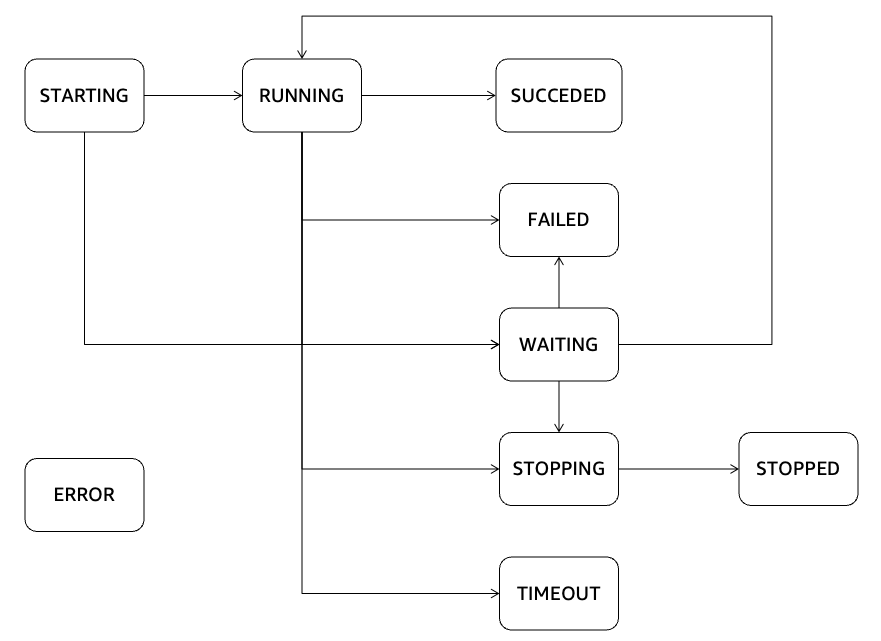You can view the status of an AWS Glue extract, transform, and load (ETL) job while it is running or after it has stopped. You can view the status using the AWS Glue console, the AWS Command Line Interface (AWS CLI), or the GetJobRun action in the AWS Glue API.
Possible job run statuses are STARTING, RUNNING,
STOPPING, STOPPED, SUCCEEDED, FAILED,
ERROR, WAITING and TIMEOUT.
The following table lists the statuses that indicate abnormal job termination.
| Job run status | Description |
|---|---|
FAILED |
The job exceeded its maximum allowed concurrent runs, or terminated with an unknown exit code. |
ERROR |
A workflow, schedule trigger, or event trigger attempted to run a deleted job. |
TIMEOUT |
The job run time exceeded its specified timeout value. |
WAITING |
A job run that is waiting for resources. |
The WAITING status indicates a job run is waiting for resources. The following table describes wait
behavior for different classes of jobs.
| Job type | Behavior |
|---|---|
| Spark jobs (Standard) | Jobs may enter the WAITING state if you opt into AWS Glue job run queuing as described in Configuring job properties for Spark jobs in AWS Glue. A job run may be in the WAITING state due to service quotas for your account or capacity limits in your region encountering one of the following error cases:
|
| Spark jobs (Flex) | A new job run will be in the WAITING state if the service is not able acquire enough resources to start the run, which delays the starting of the run. The run will be in WAITING state for a maximum of 20 minutes (timeout controlled by the service). After 15 minutes, the service will try to do a force start and depending on available capacity the run may start or fail with an appropriate error message. |
| Python shell jobs | Same behavior as standard jobs using Spark. |
The following state diagram outlines expected state transitions through the lifecycle of a AWS Glue job. This information is applicable to all job types.
